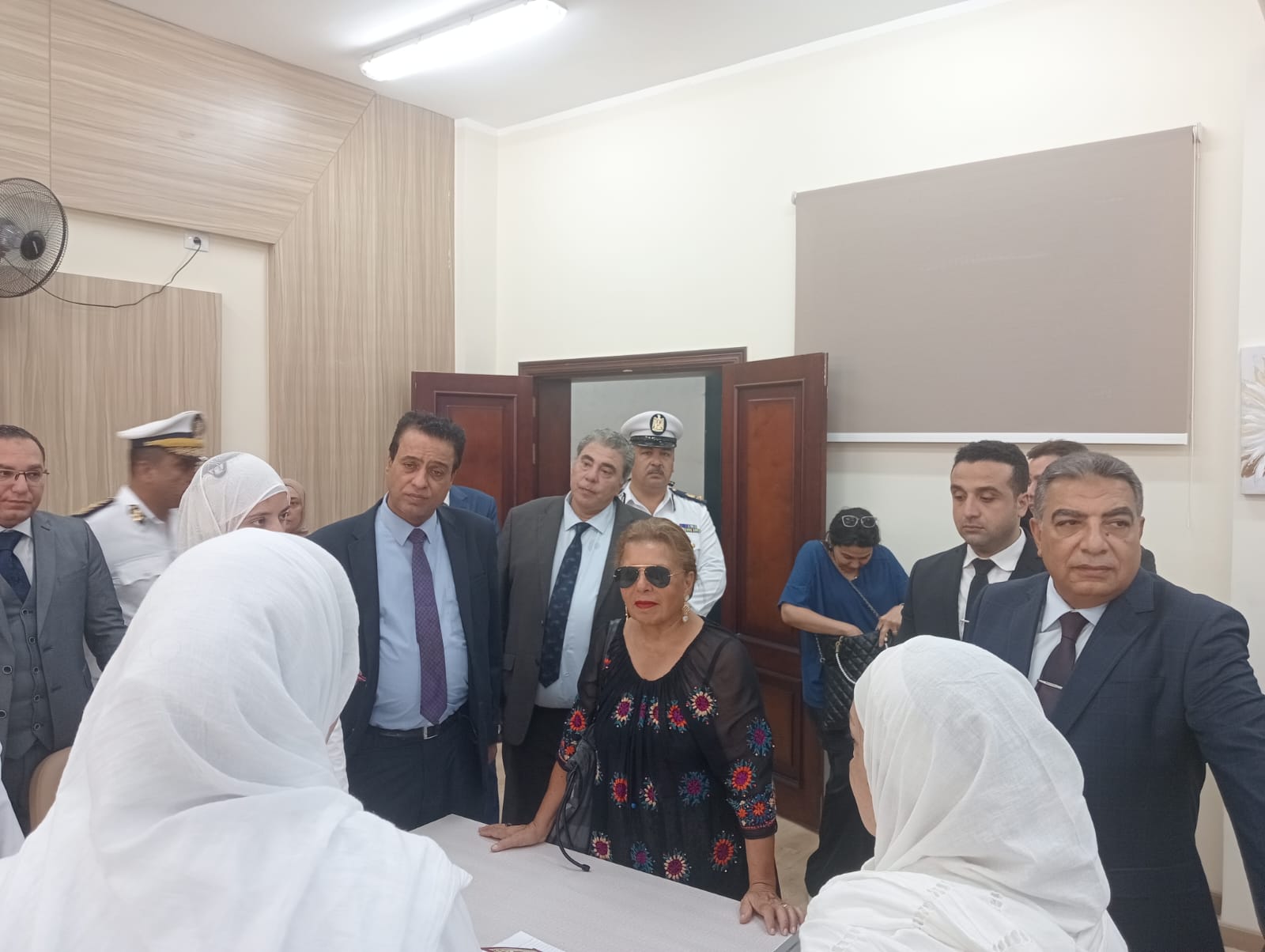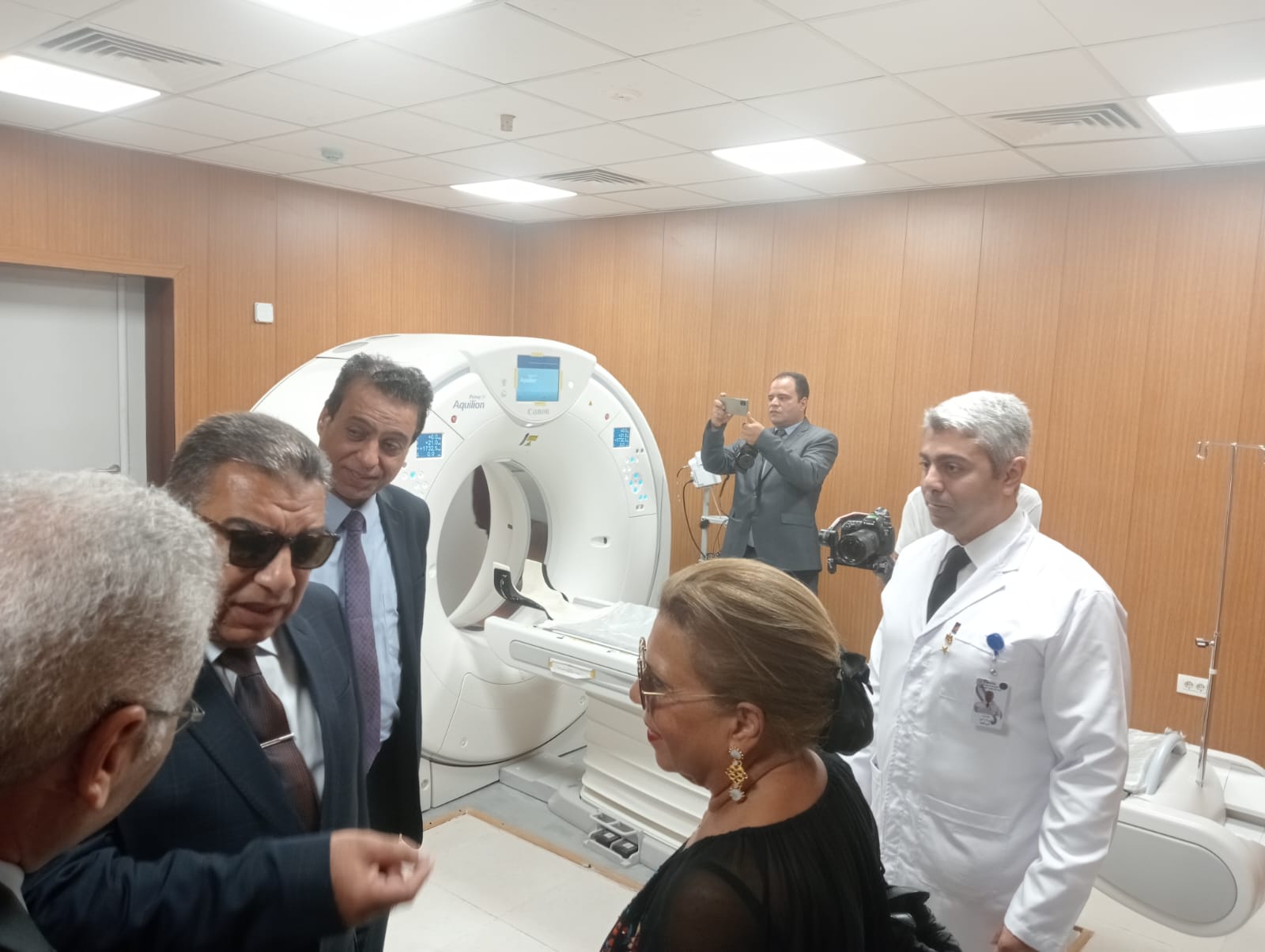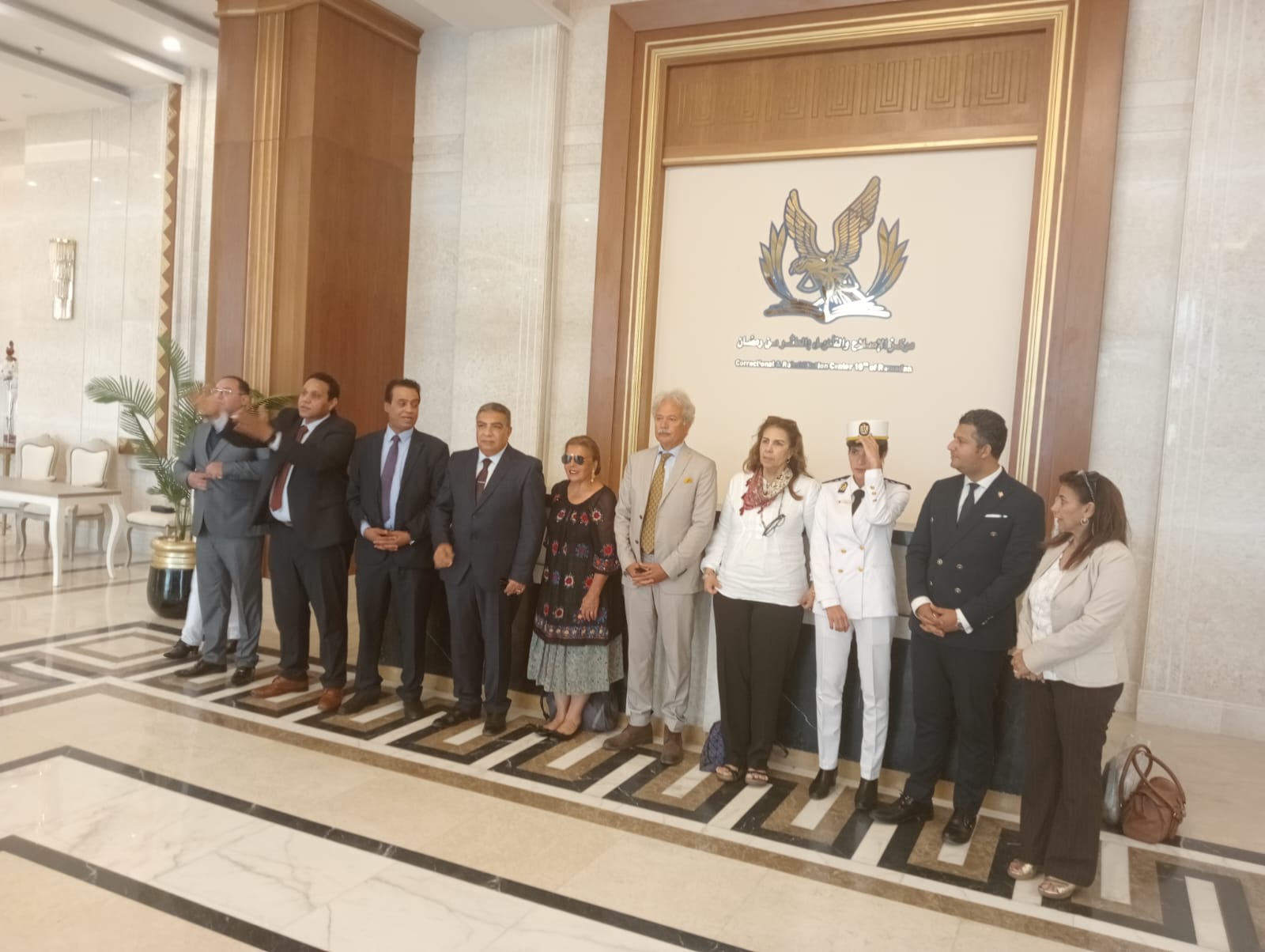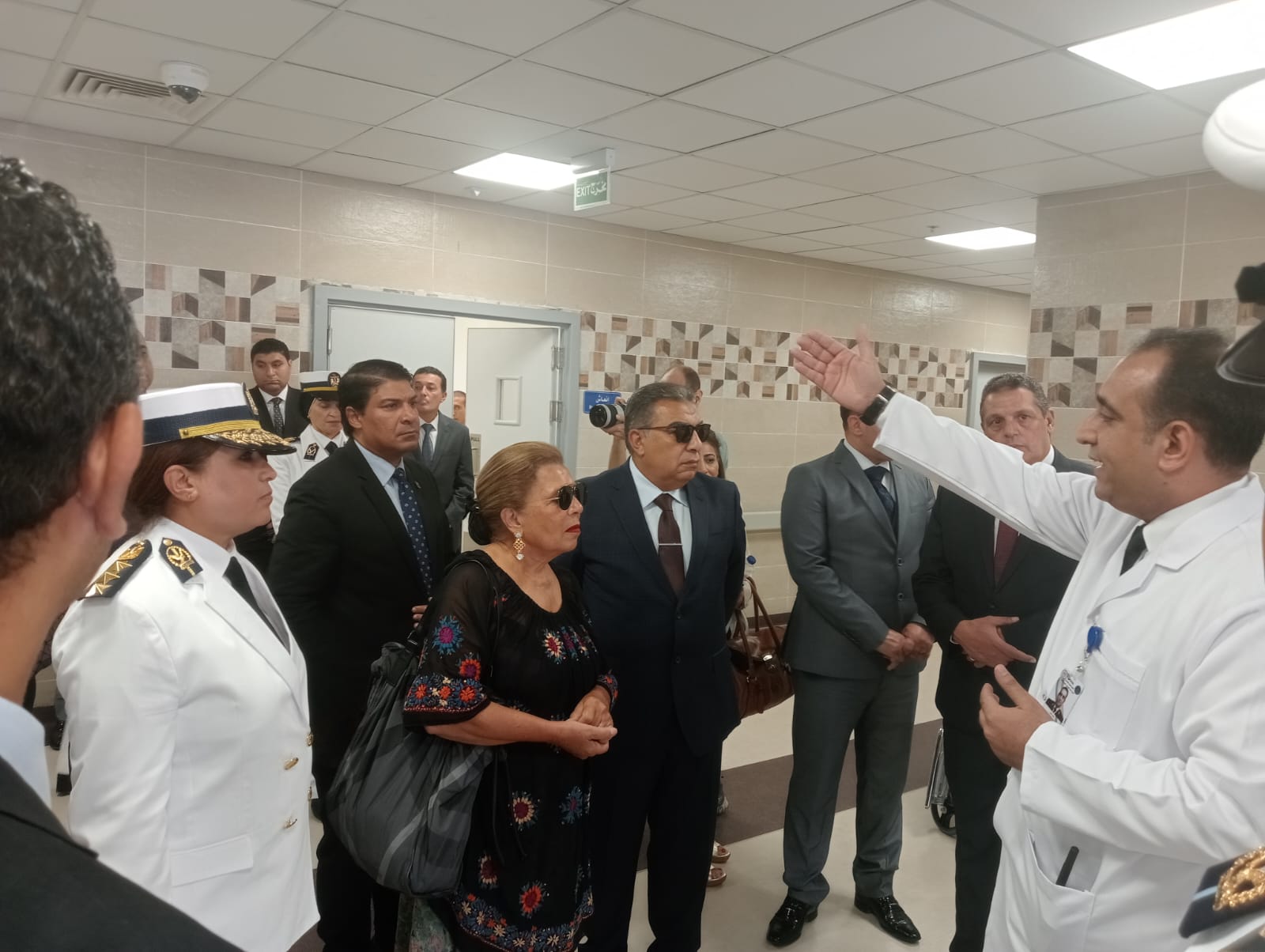The National Council for Human visits the Correction and Rehabilitation Center in 10th of Ramadan
Within the framework of the National Council for Human Rights’ (NCHR) follow-up to the Ministry of the Interior’s plan related to establishing and operating new correctional and rehabilitation centers, as an alternative to the old and currently existing prisons and centers, and in connection with the ongoing coordination between NCHR and the Ministry’s community protection sector, a high-level delegation of members of NCHR headed by Ambassador Moushira Khattab President of NCHR with a comprehensive inspection visit to the Correction and Rehabilitation Center on the Tenth of Ramadan.
The visit of NCHR delegation witnessed an inspection of a number of female inmate wards at the center, listening to their assessment of the living conditions and procedures related to obtaining their legal rights, inspecting all the equipment and components of the wards and facilities attached to them, and reviewing the insurance and control procedures and means used in them and the extent to which these equipment and means respond to guarantees of the right to privacy for female inmates.
The NCHR delegation also inspected the hospital attached to the center and all its departments and equipment. It reviewed the records and conducted a dialogue with a number of male and female inmates who frequented the hospital to obtain medical services. The NCHR delegation also inspected the production and training facilities at the center and listened to the evaluation of the male and female inmates working and trainees in these facilities, which were represented by clothing manufacturing workshops. It is already operating, and a group of animal and poultry production wards is currently being operated.
The NCHR delegation also inspected the center’s kitchen and viewed the meals provided to inmates, including meals designated for medical cases, and additional meals for inmates working in the center’s production facilities. The NCHR also visited the recreational facilities, exercise areas, and playgrounds. The NCHR delegation also watched rehearsals of impressive singing and musical performances performed by a number of talented male and female inmates who were discovered, trained and integrated into this fine artistic activity under the supervision of one of the artists from the Faculty of Art Education. The NCHR delegation was keen to conduct a friendly dialogue with the male and female inmates, members of the musical band, as well as with the artist supervising it.
In addition, the NCHR delegation inspected the police cadres training center attached to the rehabilitation center, which provides in-depth training programs for officers and officials of the center’s administration. The NCHR l delegation participated in part of a training workshop that was held during the visit for the center’s officers on the standard minimum rules for the treatment of prisoners and their relationship to the constitution and Egyptian law. .
On the sidelines of the visit, the NCHR delegation held a lengthy and in-depth dialogue with Major General Tariq Marzouk, Assistant Minister of the Interior for the Community Protection Sector, in the presence of a number of leaders and officials of the sector and the Rehabilitation and Reform Center in 10th of Ramadan, in order to discuss the outcomes of the visit and the proposed cooperation and coordination frameworks between NCHR and the Protection Sector. Community-based efforts to ensure the sustainability and completion of efforts to improve the penal system in Egypt, and to benefit from the NCHR’s experience in enhancing training and rehabilitation opportunities for officers and officials responsible for managing modern rehabilitation centers.
The dialogue between Mr. Major General Assistant Minister of the Interior and the NCHR delegation also included a discussion of the current position of the plan to replace the old prisons as a direct result of the completion of the first and second phase of establishing the upgraded rehabilitation and correctional centers, which is considered a qualitative leap in providing the basic infrastructure and service components that support the rights of inmates and their families, as the Assistant Minister revealed. The Ministry of Interior announced that, so far, 27 of the old prisons have been completely closed and their inmates have been transferred to the five upgraded centers that were established and operated in Wadi al-Natroun, Badr, Akhmim, 10th of Ramadan, and May 15th. This is out of a total of 43 existing prisons that will be completely closed with the completion of the phase. The last part of the replacement and development plan implemented by the Ministry.
NCHR indicates that it is reassured by the level and nature of the equipment of the Correction and Rehabilitation Center in the Tenth of Ramadan, and their suitability to the rights of inmates, both male and female. NCHR also appreciates what it saw during its inspections of the inmates’ wards and attached facilities, and the members’ direct conversation with them in an in-depth and individual manner, including not using any means of surveillance inside the cells that are inconsistent with the privacy of women, NCHR verified that no cameras or photographic equipment were used inside the wards, as well as the NCHR’s appreciation for the quality of the center’s medical, food, rehabilitation and recreational services, and the positive impressions and evaluation of the male and female inmates whom the NCHR members met regarding the treatment and practices of the center’s officers and officials.
NCHR recommended the importance of accelerating the transfer of all inmates from the old prisons to the new rehabilitation centers, and ensuring geographical distribution in a way that does not constitute a burden on the inmates’ eligibility and guarantees their right to visitation in a smooth and inexpensive manner. NCHR also stressed the importance of strengthening the ongoing efforts for continuous training and capacity building for the cadres of the rehabilitation and correction centers through cooperation with NCHR, civil society organizations, UN bodies, and specialized training institutions.





 English
English
 Arabic
Arabic
 French
French




